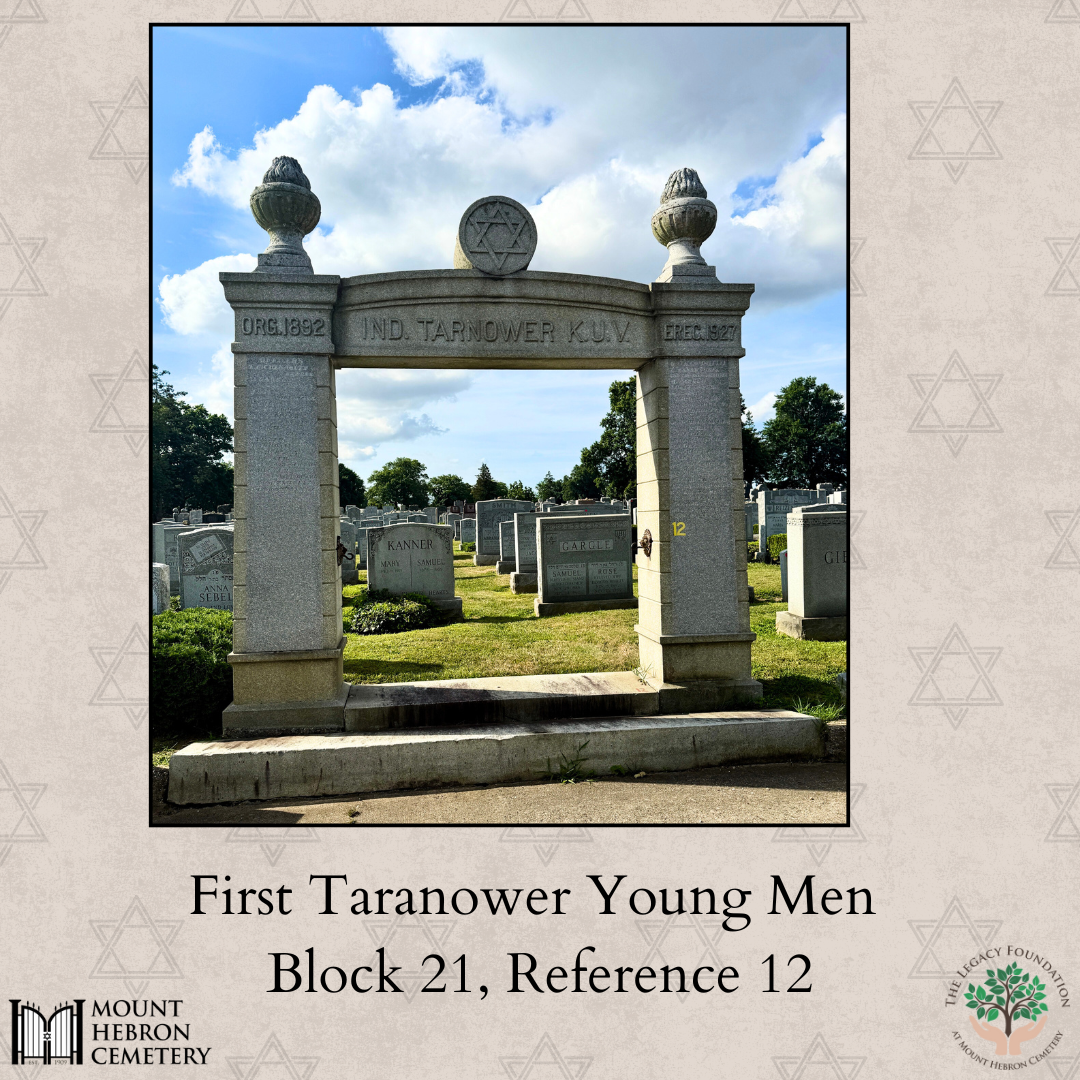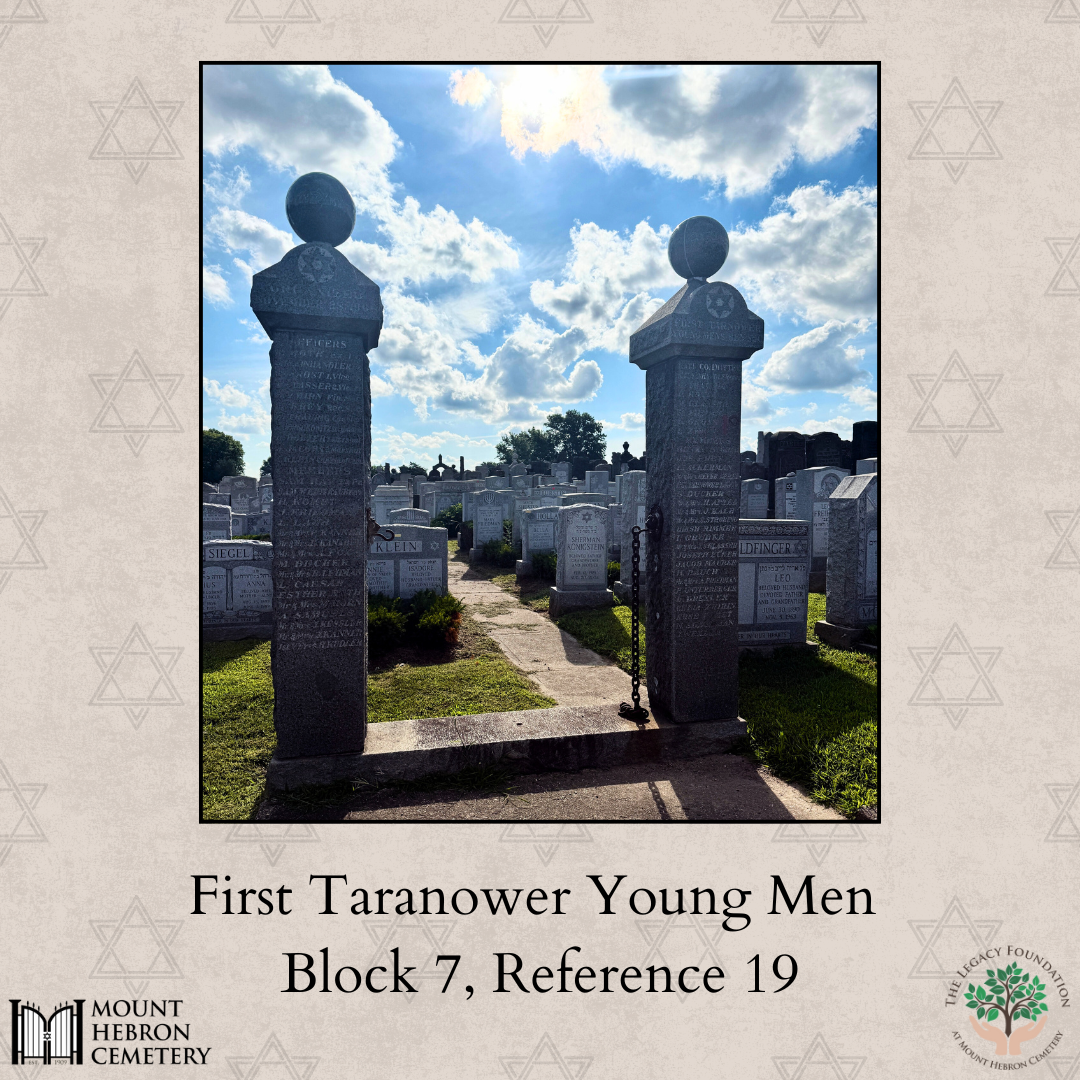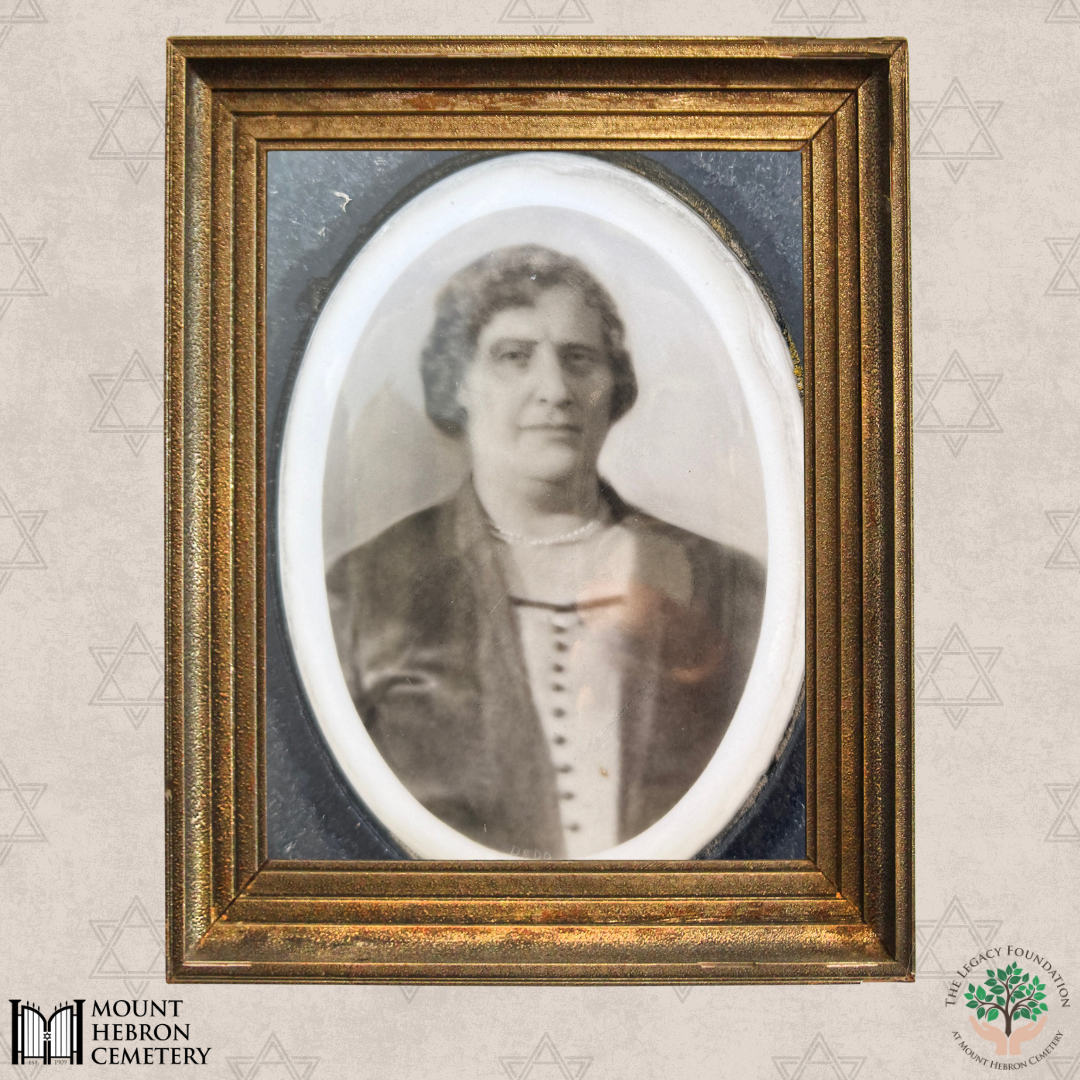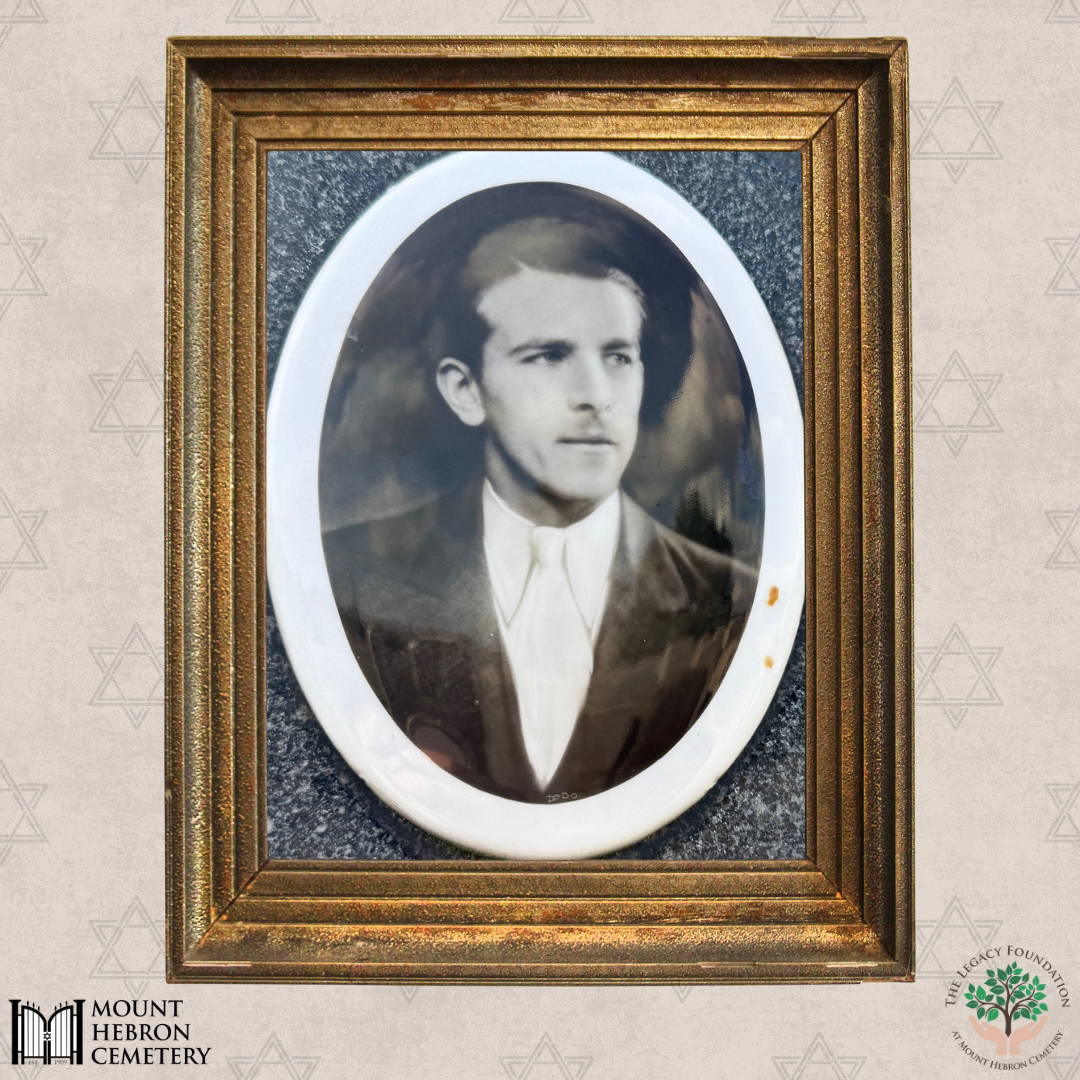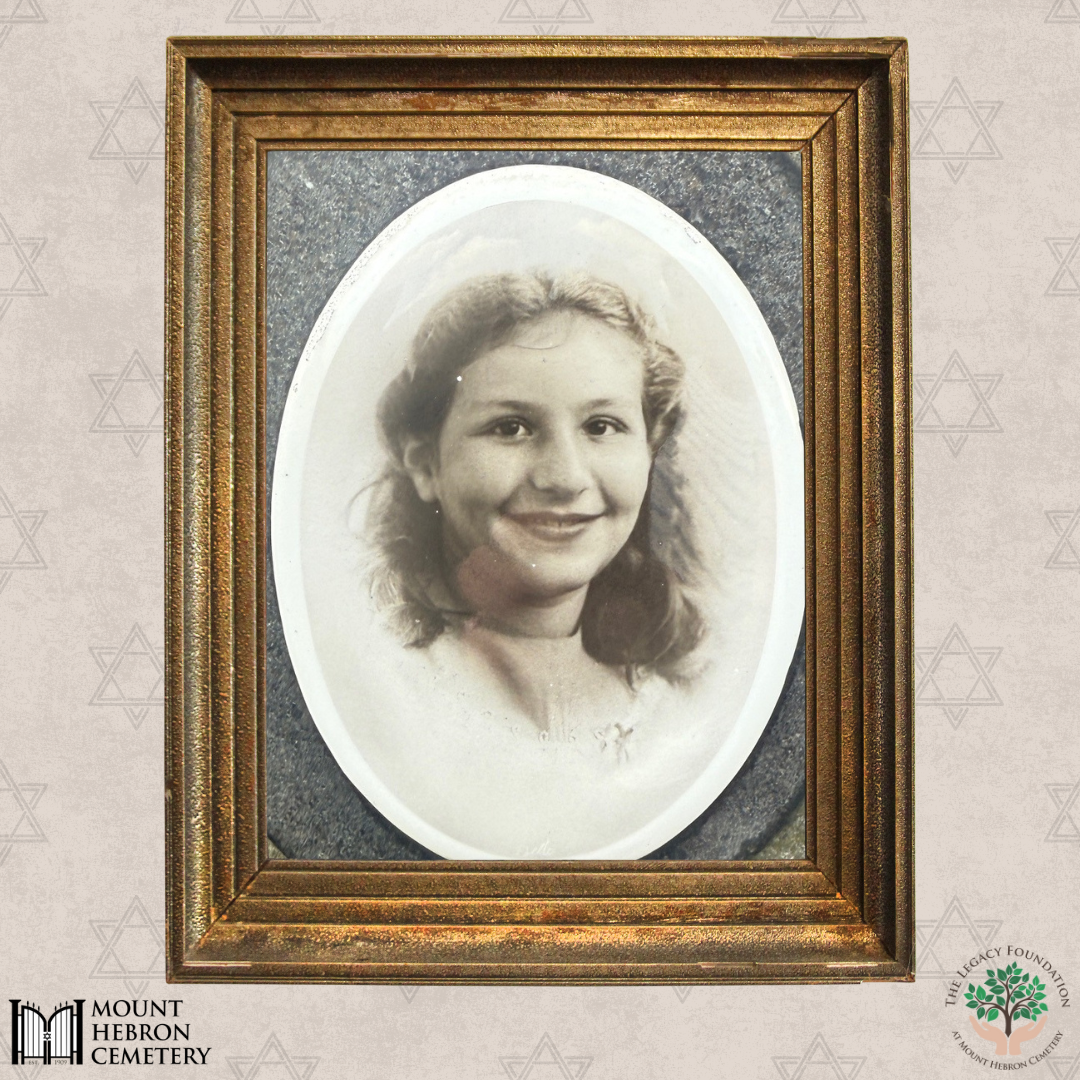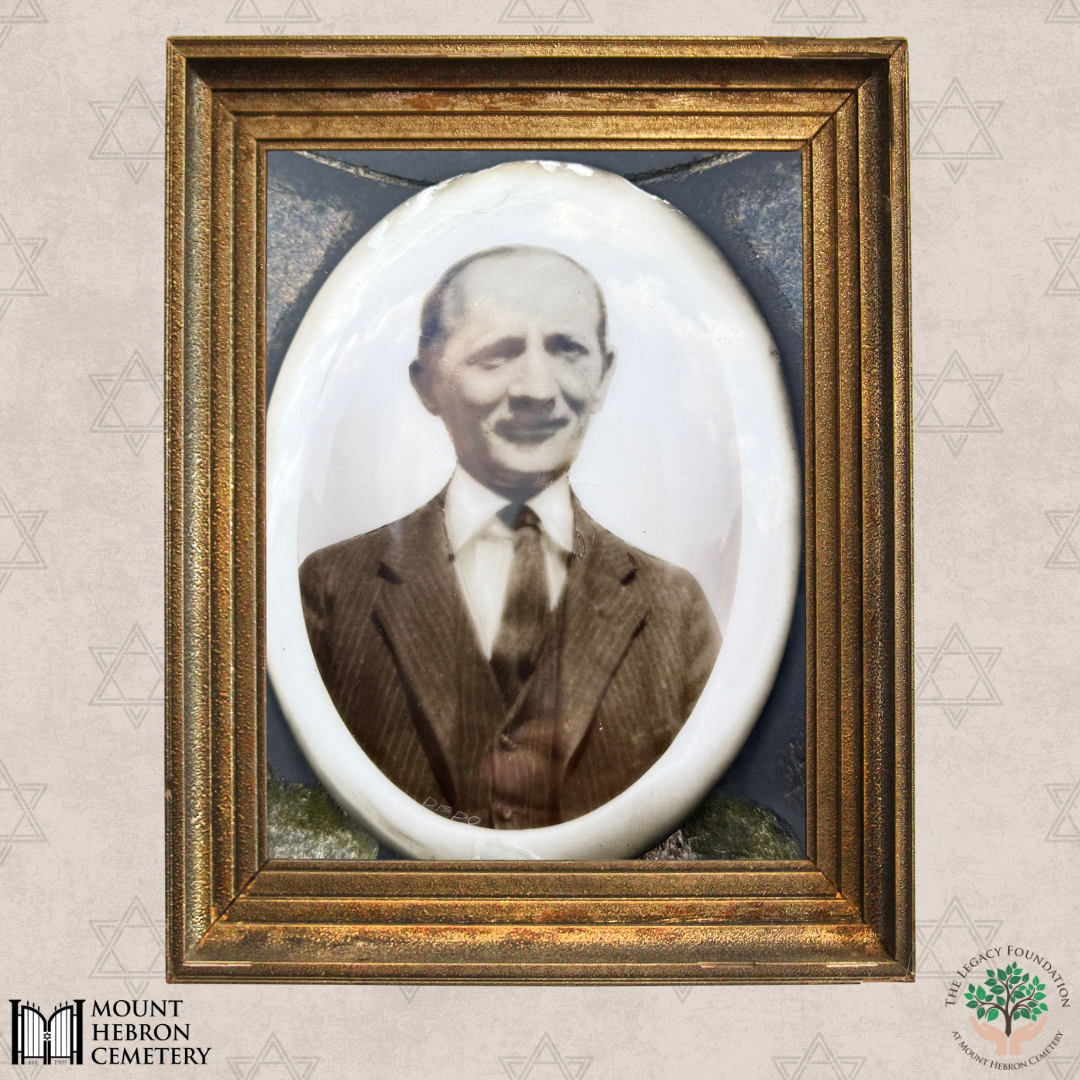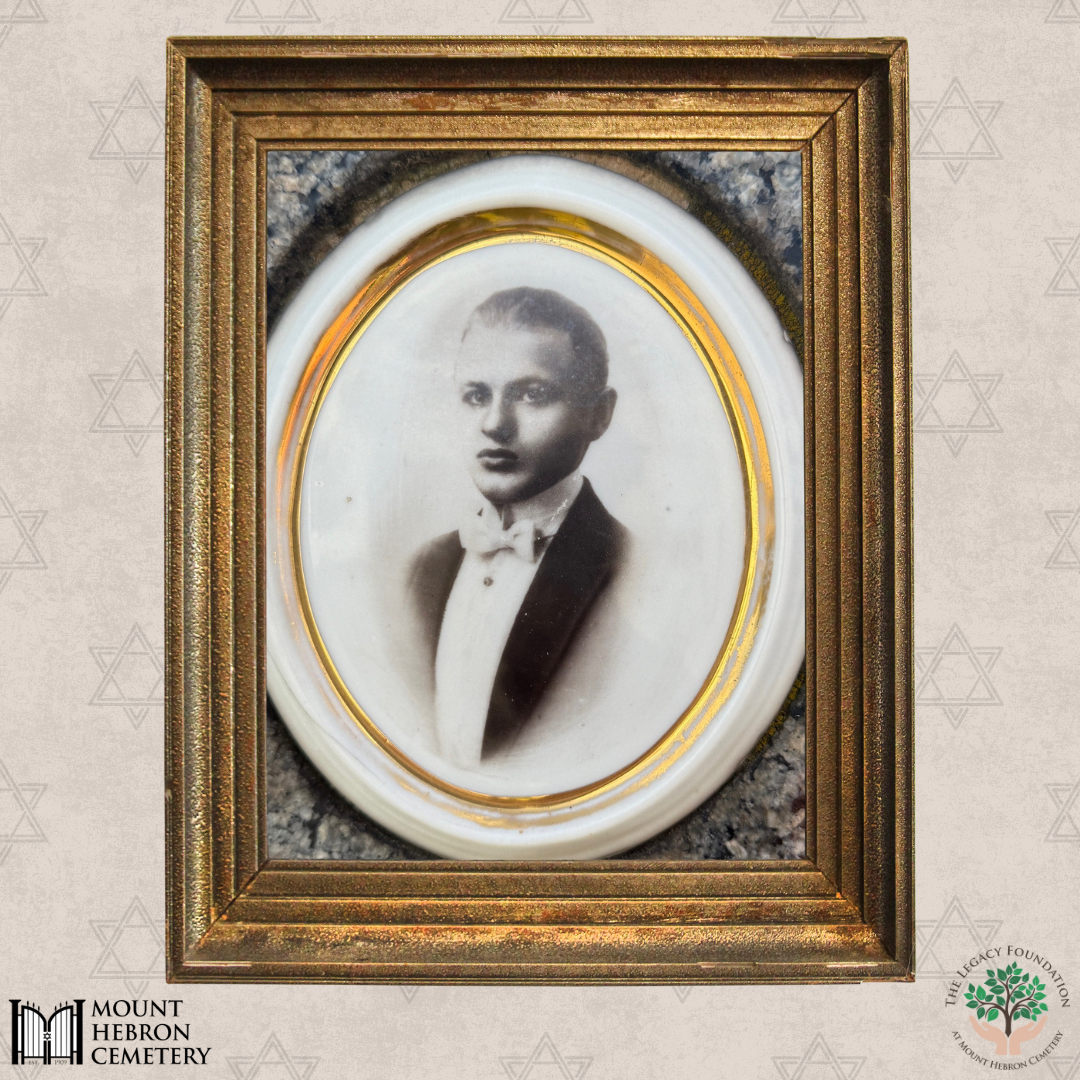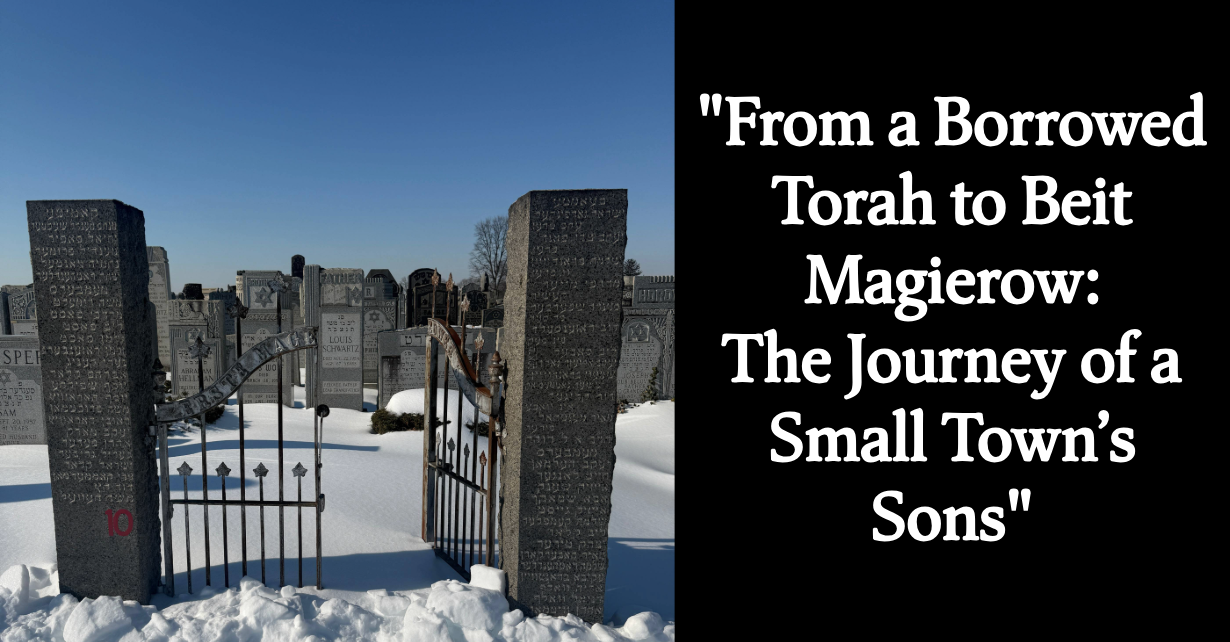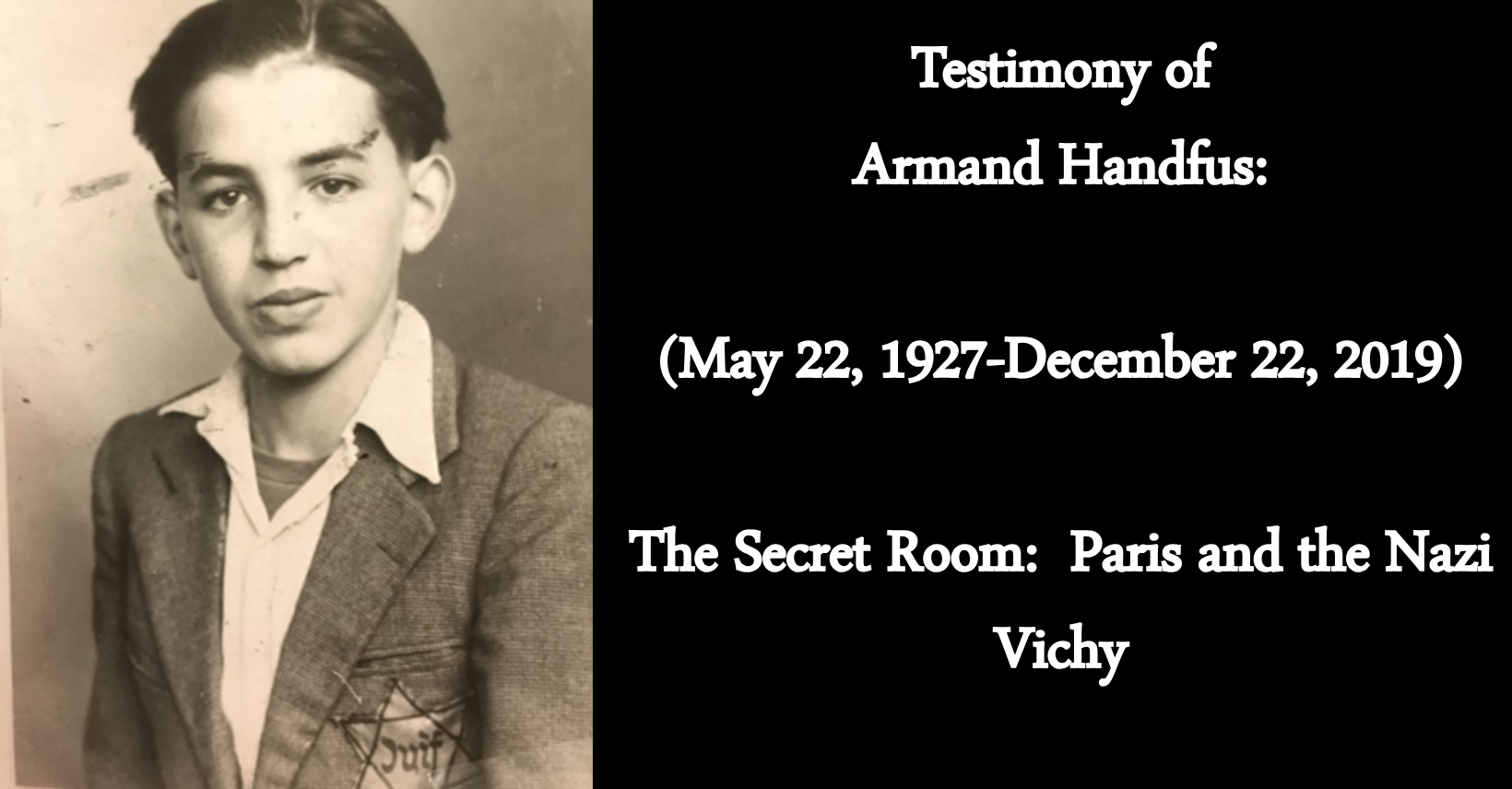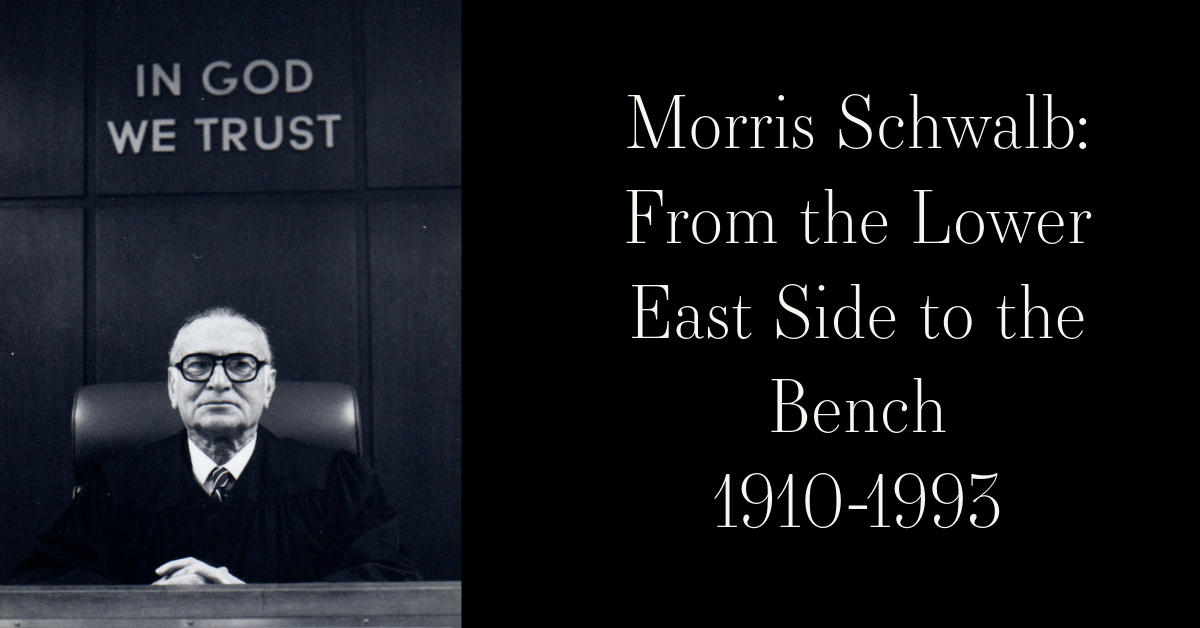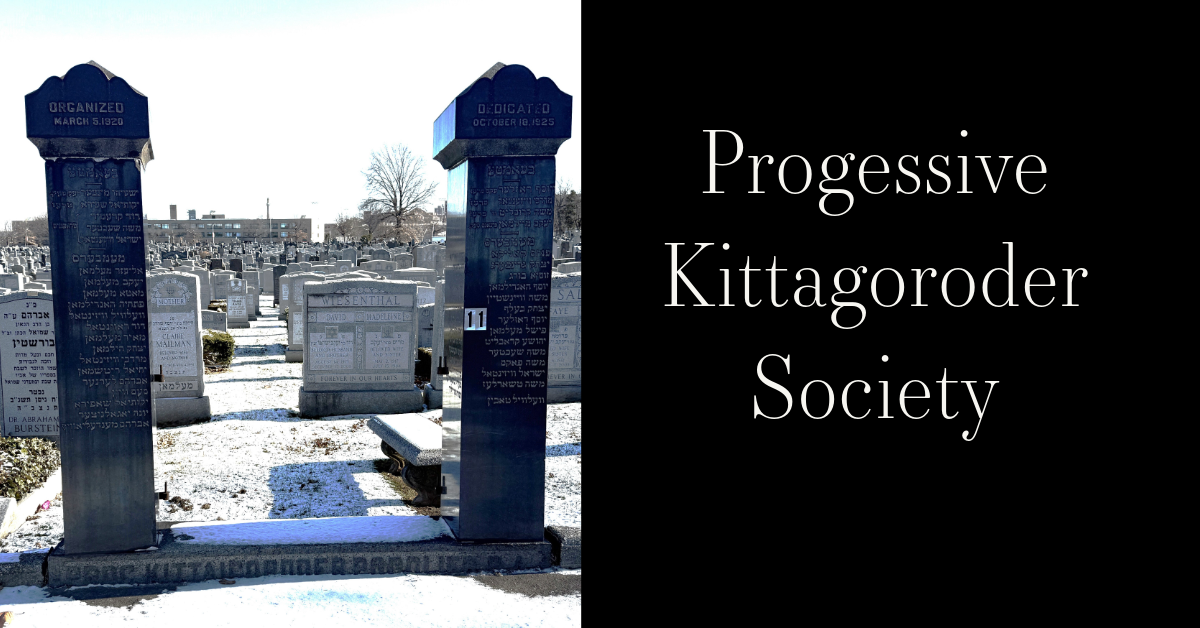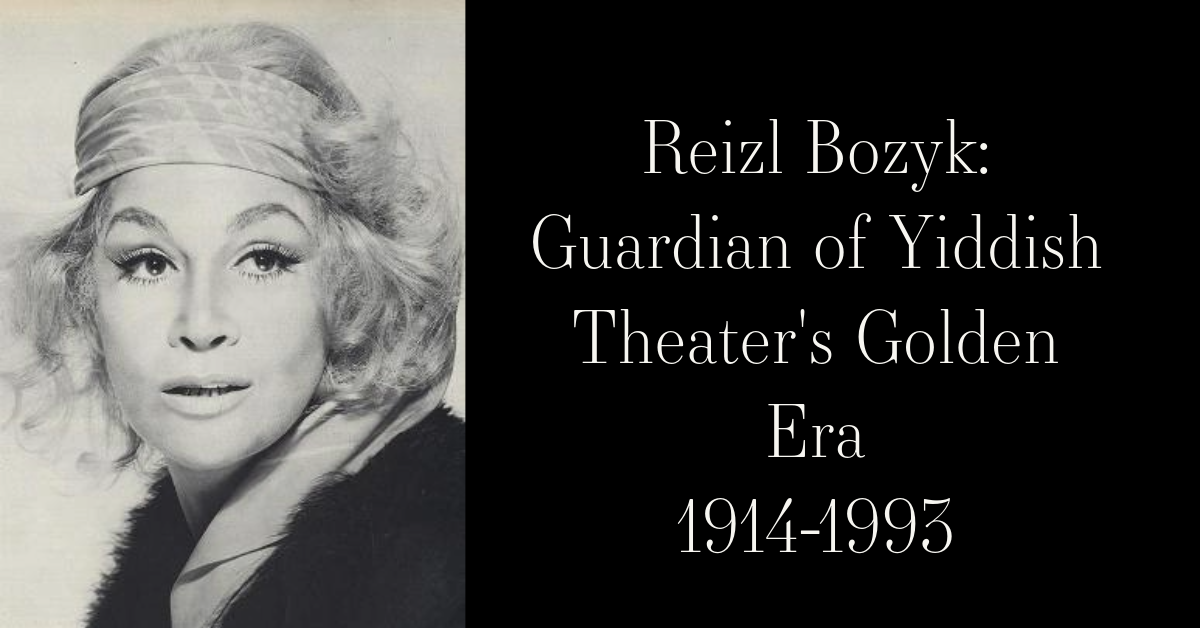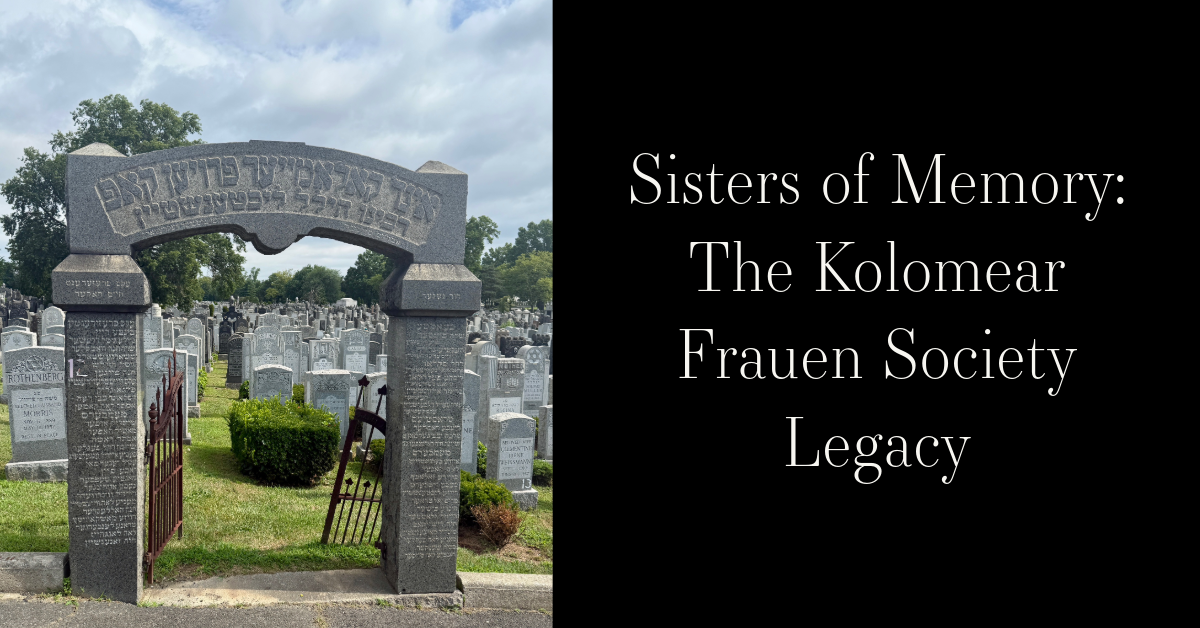Story Summary:
The First Tarnower Young Men's Benevolent Society was a mutual aid organization formed in New York by Jewish immigrants from Tarnow, Poland, to support one another through financial assistance, sick benefits, and burial arrangements, including plots at Montefiore Cemetery. Tarnow had a large and vibrant Jewish population before World War II, known for its religious, cultural, and economic contributions, but the community was devastated during the Holocaust when thousands were deported or murdered. The society helped preserve the memory of Tarnow and its Jewish residents through communal care and tradition, and its records, now held at the Center for Jewish History, remain a vital link to a lost world and a testament to immigrant resilience and remembrance. ~Blog by Deirdre Mooney Poulos
“The Story of the First Tarnower Young Men’s Benevolent Society”
The First Tarnower Young Men's Benevolent Society was one of the many Jewish landsmanshaftn formed in New York City in the early 20th century by immigrants seeking to rebuild their lives while preserving ties to the towns they left behind. This society was established by Jewish immigrants from Tarnow, a city in southern Poland known for its large and vibrant Jewish population. As with other mutual aid societies of the time, the First Tarnower Young Men's Benevolent Society provided essential support to its members, including financial assistance, sick benefits, burial arrangements, and a sense of community in a foreign land. The society owned burial plots in Montefiore Cemetery in Queens, New York, where members could be buried among their landsleit with dignity and connection to their roots. The society’s records, preserved at the Center for Jewish History, offer valuable insights into how immigrants from Tarnow maintained cultural continuity and communal bonds amid the challenges of immigrant life.
Tarnow, located in the Galicia region of southern Poland, was home to a substantial and well-established Jewish community that dated back to the 15th century. By the 20th century, Jews made up nearly half of Tarnow’s population. The community was diverse in its religious, social, and political life, with Hasidic Jews, Zionists, secular intellectuals, and labor activists all playing visible roles in Tarnow’s Jewish society. Jews contributed significantly to Tarnow’s economy as merchants, artisans, and professionals. The city had many synagogues, schools, libraries, and cultural institutions that reflected a dynamic and deeply rooted Jewish presence. Despite periodic antisemitism, Tarnow remained one of Poland’s most important Jewish centers until the Holocaust.
As waves of emigration swept through Eastern Europe in the late 19th and early 20th centuries, many Jews from Tarnow made their way to the United States. They fled poverty, military conscription, and rising antisemitism, searching for opportunity and safety. In New York, they joined others from Galicia and Poland and formed the First Tarnower Young Men's Benevolent Society to recreate the mutual support they had known back home. These societies offered a vital safety net at a time when there were few government resources for immigrants. Members paid dues that funded burial plots, funeral costs, sick benefits, and aid for widows and orphans. The society also hosted religious and cultural events that helped maintain Jewish identity and ties to Tarnow.
The Holocaust brought an abrupt and tragic end to Jewish life in Tarnow. When the Nazis occupied the city in 1939, they immediately began to persecute its Jews. Tarnow’s synagogues were burned, its Jewish leaders arrested, and thousands were murdered or deported. In 1942, the majority of the Jewish population was rounded up and sent to the Belzec extermination camp or shot in mass executions. The Tarnow ghetto was eventually liquidated, and very few of its Jews survived the war. For those who had emigrated earlier, the societies they built in New York became the last living links to a world that had been destroyed. The burial plots, society records, and meeting minutes of the First Tarnower Young Men's Benevolent Society now serve as enduring memorials to the people and culture of Tarnow.
Today, institutions like the Center for Jewish History help preserve the archival material left behind by societies like the Tarnower. These records tell stories of solidarity, loss, and the persistence of identity in the face of displacement. Through burial gates at Montefiore Cemetery and the names inscribed on headstones, the First Tarnower Young Men's Benevolent Society continues to speak to the power of community, the importance of memory, and the resilience of Jewish immigrants who transformed grief into purpose and built lives that honored the towns they once called home. ~Blog by Deirdre Mooney Poulos
Work Cited:
JewishGen Communities Database – Tarnow: https://www.jewishgen.org/Communities/
United States Holocaust Memorial Museum – Tarnow: https://encyclopedia.ushmm.org
Center for Jewish History – Tarnower Society Records:
https://www.cjh.org
Montefiore Cemetery – Burial Listings:
https://www.montefiorecemetery.org
Yad Vashem – Central Database of Shoah Victims’ Names: https://yvng.yadvashem.org
New York Public Library – Landsmanshaftn Archives:
https://www.nypl.org
Jewish Genealogical Society of New York – Burial Society Index: https://www.jgsny.org
Jewish Virtual Library – History of Jews in Poland: https://www.jewishvirtuallibrary.org


